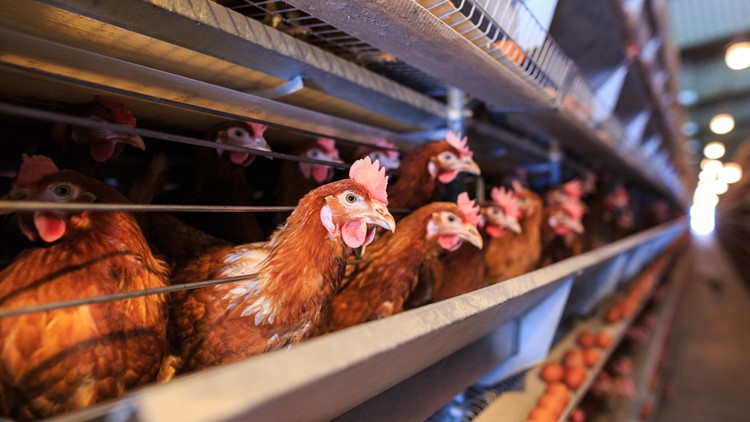ST. PETERSBURG, Fla. — Have you ever heard of avian influenza, also known as the bird flu? Well, now is the time to read up on the disease that is popping up across the nation.
Bird flu refers to the disease caused by infection with avian (bird) influenza (flu) Type A viruses, according to the Centers for Disease Control and Prevention. The viruses spread naturally throughout wild aquatic birds worldwide.
Even with it spreading among wild aquatic birds, it can infect domestic poultry such as chickens and turkeys along with other types of birds and different animal species.
Some birds that are more susceptible to avian influenza include:
- Ducks
- Geese
- Swans
- Gulls
- Terns
- Shorebirds - such as storks, plovers and sandpipers.
How does it spread?
Infected birds can shed the virus in their saliva, nasal secretions and feces, the CDC says. Susceptible birds can come in contact with what is shed and become infected.
They can also get infected through contact with surfaces contaminated with the virus.
The U.S. Department of Agriculture Animal and Plant Health Inspection Service says some birds can be infected and show no signs of illness. They can carry it to new areas when migrating.
But there are some ways to recognize a sick bird! The Michigan Department of Agriculture & Rural Development lists these indicators sick birds could experience:
- Sudden death
- Significant drop in water consumption
- Lack of appetite, energy or vocalization
- Drop in egg production
- Diarrhea
- Swollen comb, wattles, legs or head
- Nasal discharge, sneezing or coughing
- Abnormal behavior like difficulty walking
Are humans susceptible?
One thing to keep in mind: The bird flu doesn't normally infect humans, but there have been cases of people contracting the bird flu.
According to the CDC, people sick from avian influenza have ranged from having no symptoms or mild illness to severe disease that ended in death.
Similar to birds, humans can become infected if the virus gets into their eyes, nose or mouth. If someone touches a surface contaminated and touches their face, they have a high chance of becoming infected.
"The spread of bird flu viruses from one infected person to a close contact is very rare, and when it has happened, it has only spread to a few people," CDC leaders wrote.
"However, because of the possibility that bird flu viruses could change and gain the ability to spread easily between people, monitoring for human infection and person-to-person spread is extremely important for public health."
The CDC reported Thursday of a person testing positive for avian influenza in Colorado. The person reportedly had direct exposure to poultry that was contaminated.
They are being isolated and treated with an influenza antiviral drug, the CDC explains.
To read the full report from the CDC, click here.
Local protection in place?
Recently, that same virus traveling across the county was detected in the Tampa Bay area. As a result, local zoos and other groups are taking precautions to try to safeguard some of our feathered friends.
At ZooTampa at Lowry Park, visitors might notice signs letting them know some aviaries and bird exhibits are closed right now. It's a precaution against a deadly strain of avian influenza that’s killed millions of birds around the country.
As soon as they heard about a confirmed case of bird flu in Hillsborough County, the zoo began a species-by-species assessment to determine which birds needed to be moved for safety and which ones could remain on display.
Veterinarians suggest not bringing any new birds into your home, at least not right now.
And don’t allow your pet birds outside — even if they are securely caged without supervision. Owners, they say, need to watch their pets and be sure to keep wild birds and other animals away from them.



